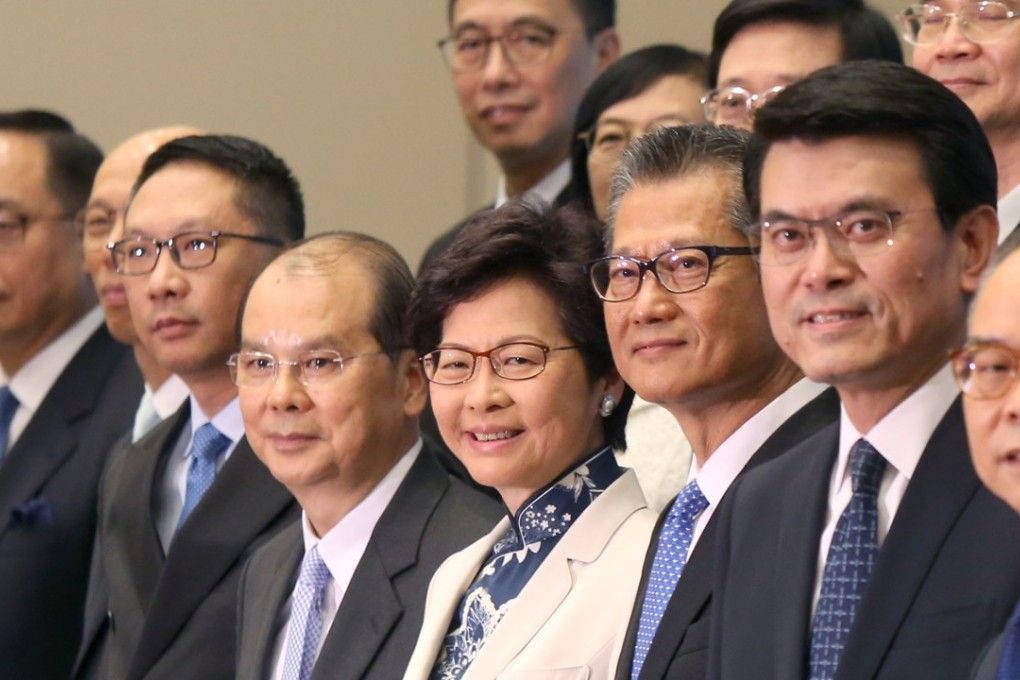My Take | ‘Red scare’ campaign by the pan-dems a low blow
Academic Simon Lee Hoey appears to be qualified for the post of deputy home affairs secretary, yet the opposition camp accuses him being a closet member of the Chinese Communist Party

The new bureau secretaries may be lacklustre and uninspiring, but at least their appointments have avoided controversies. Oddly, the hiring of their deputies has proved far trickier, as the opposition has started to pick fights. Chief Executive Carrie Lam Cheng Yuet-ngor’s political honeymoon may already be over.
The knives are out as rumours circulate that Lee is being considered for the post of deputy home affairs secretary. He is currently deputy executive director of Our Hong Kong Foundation, the think tank that was the brainchild of former chief executive Tung Chee-hwa.
Pan-democrats such as Democratic Party legislator Lam Cheuk-ting have accused Lee of being a leftist based on his publications and work experience. Lee does write a lot because he is, well, a scholar. He has a PhD in law from Tsinghua University, and is a specialist in constitutional and international law. He also has advanced degrees from the Chinese University of Hong Kong and University of London, and is an adviser at Harvard Law School and a visiting fellow at the University of Hong Kong’s law school.
His recent publications, which some find questionable, have defended the current chief executive election method, the government’s failed electoral reform package in 2015 and Deng Xiaoping’s conception of the “one country two systems” governing principle for Hong Kong. His views may be disagreeable to pan-democrats, but they are fairly mainstream.
